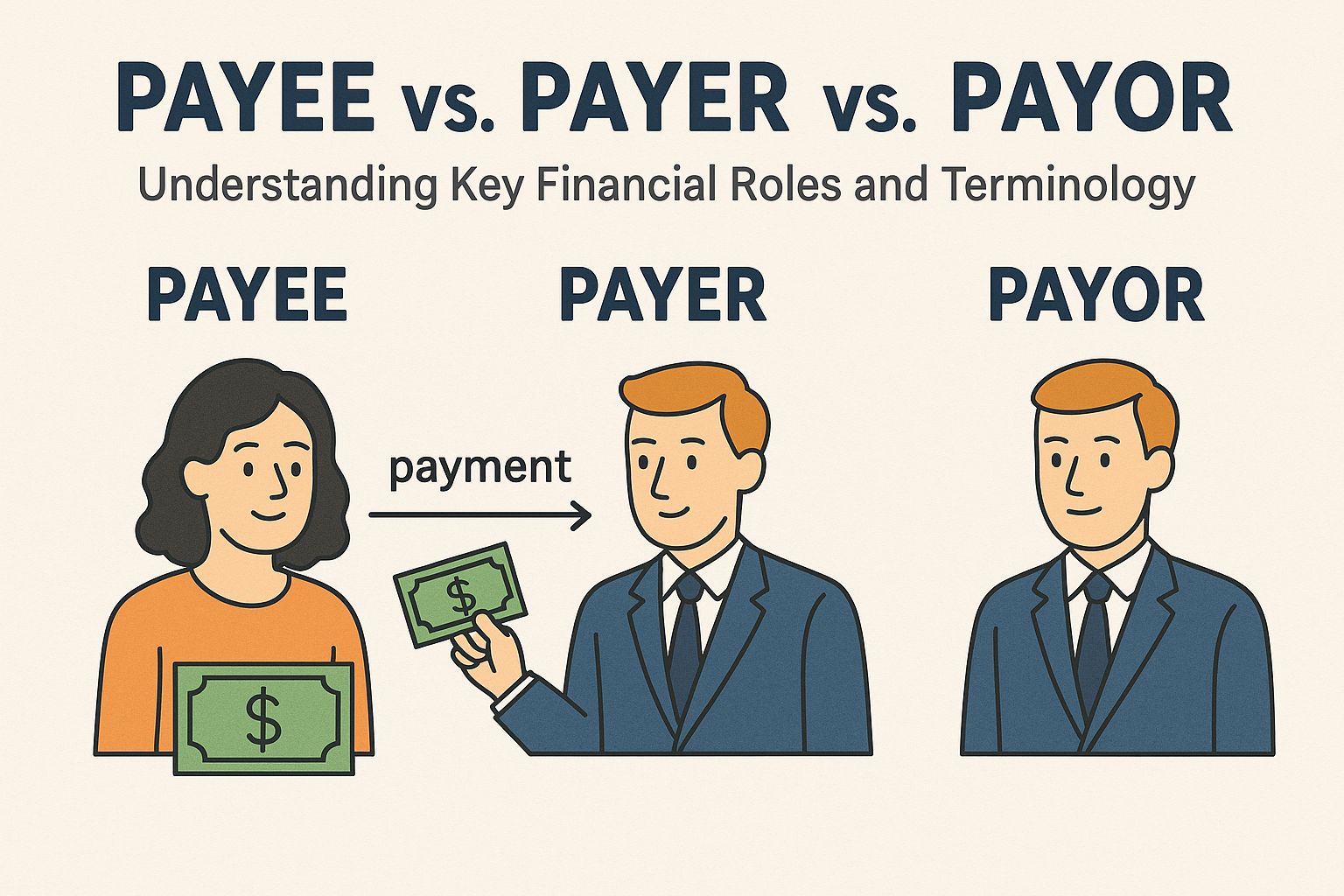Payee vs. Payer vs. Payor: Understanding Key Financial Roles and Terminology
Understanding the responsibilities of every actor in the areas of banking, law, insurance, and general commerce is quite important. Often...

Understanding the responsibilities of every actor in the areas of banking, law, insurance, and general commerce is quite important. Often used, and sometimes misunderstood, are the terms payee and payer, or payor. Notwithstanding their similarity, these phrases stand for opposing ends of a financial deal.
We’ll look at the difference between payee and payor, consider the conflict between payor and payer, and explain the right application of payor or payer under different circumstances. If you are also struggling with the debate of payee vs payor, then this article will provide you with a deep understanding of both these concepts.
Overview of a Payee
The Payee refers to a human who is entitled to a payment or is the beneficiary of a payment. Based on a contract, purchase, or service, an individual, company, or group may be due for payment. Have you ever seen a check where you need to write the name of the person who receives the payment? Well, this person is known as the payee. The payer is the recipient of funds in any business.
Overview of a payer or payor
If you are confused between payor vs payer, then the first thing that you need to keep in mind is that these two terms are used to refer to the same thing. The payer is the person or group who makes or provides compensation to another. In other words, the money comes from the payer.
If you are paying a bill, then you will be regarded as the payer or the payor. Regarding payee versus payor, the payor is the one distributing the money, while the payee is the one receiving it.
Payor vs. Payer – Which Is Correct?
Now, the biggest thing that people are concerned about is the issue of payer or payor.
- The spelling “payer” is more widely used in daily English.
- The term “payor” is more often found in insurance, medical, and legal documentation.
Both spellings are acceptable; nonetheless, context is important:
- Commonly, non-technical circumstances, such as the taxpayer and bill payer, call for the use of the term payer.
- Talking about official or contractual events, such as insurance payor and healthcare payor, use payor.
When deciding whether to employ payer or payor, consider your audience and the level of formality in the setting.
Payee vs. Payor: The Key Difference
You can understand the key difference between payor vs payee in a very simple manner, which you will remember throughout your life.
- Payee = receives money
- Payor (or Payer) = gives or sends money
Knowing who’s who is absolutely vital since two sides of the same coin in a financial deal, which includes accounting, contracts, and communication, helps to clear ambiguity.
Whether you are handling medical reimbursements, business invoices, or legal contracts, it is critical to know the roles of payee, payer, and payor. While payor versus payee relates to contrasting economic activities, the difference between payor and payer is mainly stylistic and contextual.
You will be able to precisely identify who is paying and who is getting payment when you come across these words once again, therefore removing all uncertainty.




